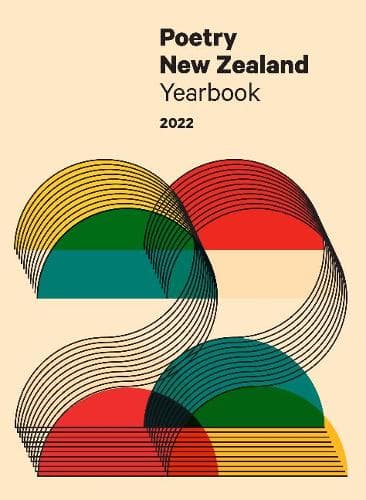Review: Poetry New Zealand Yearbook 2022
Reviewed by Erica Stretton
The Poetry New Zealand Yearbook 2022 is a substantial volume, containing treasures from prominent poets such as David Eggleton, Victor Billot, Janet Newman, Jordan Hamel, essa may ranapiri, Elizabeth Morton and Vaughan Rapatahana alongside many exceptional poets I had not encountered previously. Four thoughtful essays balance the many reviews and poems and this edition’s featured poet, Wes Lee, shows the reader many worlds nestled in her 21 pieces.
But no breakdown of the contents in this manner prepares you for the thought, beauty and disruption within the pages. To cover the breadth of this collection in a short review is impossible: one needs to return, over and over, finding new gems every time. Editor Tracey Slaughter challenges the reader to go further than simply admiring the words, telling the reader to “Waste nothing. Use everything you are to open the poems in this book.”
In Wes Lee’s work, there’s a theme of trauma manifesting “locked in to the body.” She unflinchingly uses words as a scalpel to eviscerate “low-key, incidental, domestic” incidents, exposing their bloodied internals. The female body is a horror in Doll’s Eyes are God’s Eyes:
Who doesn’t hate their female body?
When I was given dolls I buried them
and in My Heart Wakes Me, the small warnings our bodies give us are pinpointed:
The coffee is not smooth and unblown on.
There are ripples each day.
Some are like Goya’s Saturn
devouring his son.
Her poems explore many facets of the human condition but I was most drawn to those focused intently on the body, mesmerised by the razor-sharp attention to detail.
Death and its uncertainty is a perennial human obsession—especially in a pandemic—and so it seems in keeping that many poems chew at different facets of loss. John Allison’s death dealer: death doula, in couplets, grips us between the two personas, pointedly observing:
this is not a heist but most certainly
an arresting situation
while Amanda Reilly’s list poem Veronica Interrupted whistles through a life’s collected detritus before declaring “She was old. It was her time.”, neatly avoiding mundanity. Karen Zelas’ Disinterring the past hunts history in Jewish cemeteries, acknowledging loss, massive injustice and the brokenness that lives on:
broken graves that recall the broken lives
of history. He tries to heal the wounds — glue
and cement on the outside, knowing
the inside to be irreparable.
Elsewhere, Anuja Mitra’s by any other name brings sorrow to the fore: how simple is it to pronounce someone’s name correctly and how society fails when we do not, small cuts that build and build, marking one as different:
How it must be a privilege
to have a name that behaves
Another that makes the reader ache for the damage caused by injustice is Rhegan Tu‘akoi’s Our Ancestors are Watching. Tu‘akoi uses lush language to scything effect as she chronicles the Dawn Raids Apology:
We roll up the paper apologies and tie the scroll tight with coconut leaves,
place them in our vaka
and keep paddling.
Several poems touch on humans’ clumsy tread on the earth. Cindy Botha’s Duplex suffocates with ugly detail – “fish-guts and rust, oily harbour stink.” Danny Bultitude’s Stacking inserts shouting lines into a careering, snowballing block of anxiety thoughts about the climate crisis, building until the only choice is to “let them all topple.” Alastair Clarke starkly beats at drought in his poem of the same name – “dust-dry trees and “grey paddocks.”
The review/essay section basks in the scholarship of poetry. Sue Wootton’s essay This Damned Helplessness shines in its complex, meticulous discussion of the interplay between physical pain and stories—and how the latter heals. Calling upon numerous sources, she eventually concludes, “Let those voices speak. It is all about those blood gases: without inspiration we die.”
The great joy of the Poetry New Zealand Yearbook 2022 is in the voyage of discovery, interrogating each author’s words, taking note of what’s on the page and not. It seems fitting to finish with Melinda Szymanik’s words from Ancestry:
Because poetry
is not what you carve away
but the things that are missing.
Reviewed by Erica Stretton
